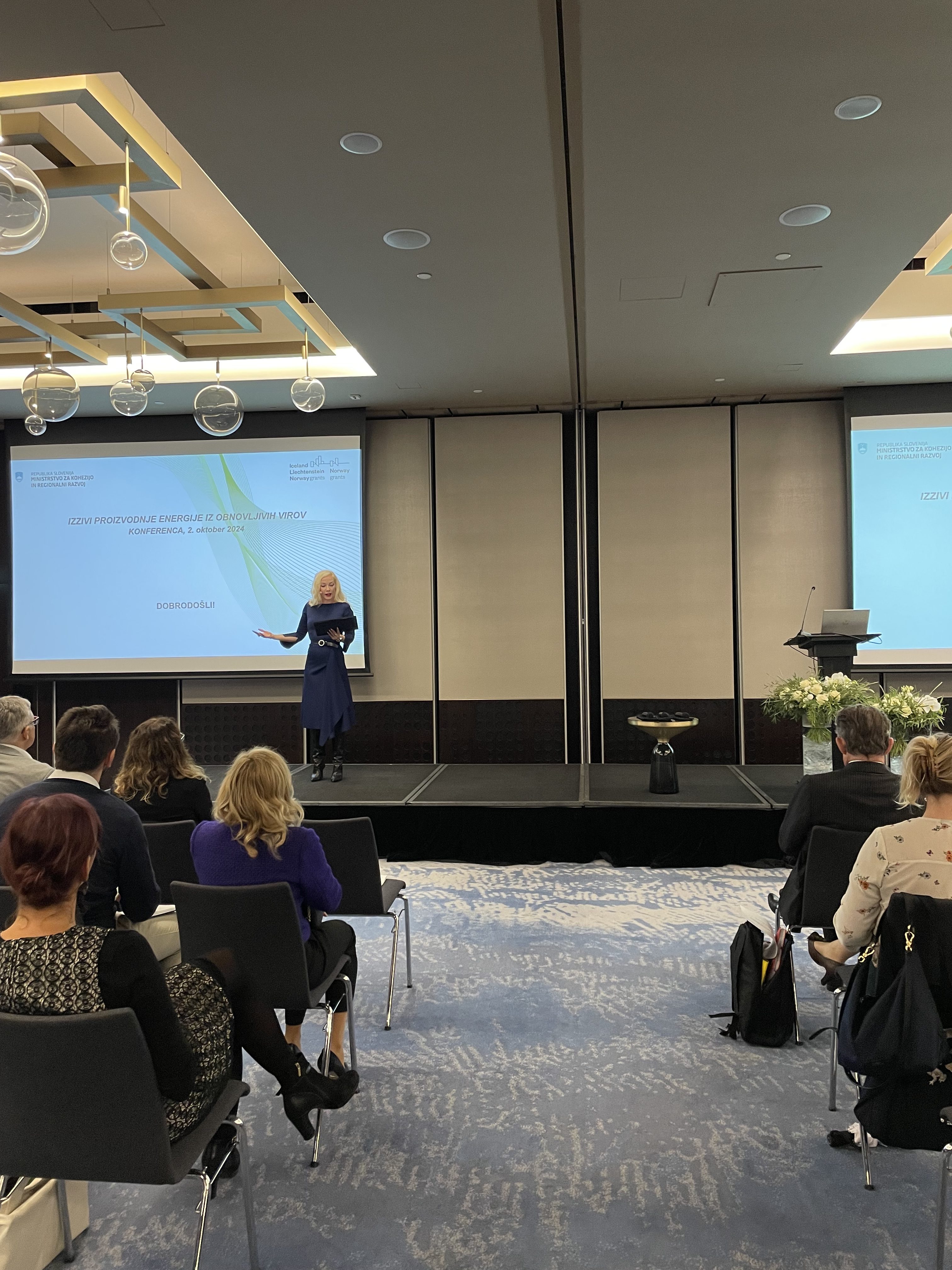
3 October 2024 – Marking the conclusion of the Climate Change Mitigation and Adaptation Programme, implemented under the EEA Financial Mechanism and Norwegian Financial Mechanism 2014–2021, a conference on Renewable Energy Production Challenges was held in Ljubljana on Wednesday, 2 October 2024.
The conference focused on renewable energy production and its challenges while showcasing three projects supported by the EEA Financial Mechanism in the field of energy production from less established renewable energy sources in Slovenia.
The event began with an opening speech by Marko Koprivc, State Secretary at the Ministry of Cohesion and Regional Development, who emphasised the significant role of the EEA and Norway Grants. He highlighted that “17 projects, involving more than 90 partners, have been successfully implemented, contributing to increased energy efficiency, increasing the share of renewable energy in the energy system, and reducing greenhouse gas emissions.” Marko Koprivc also expressed his sincere appreciation to all project partners and organisations for their invaluable contributions to these accomplishments.
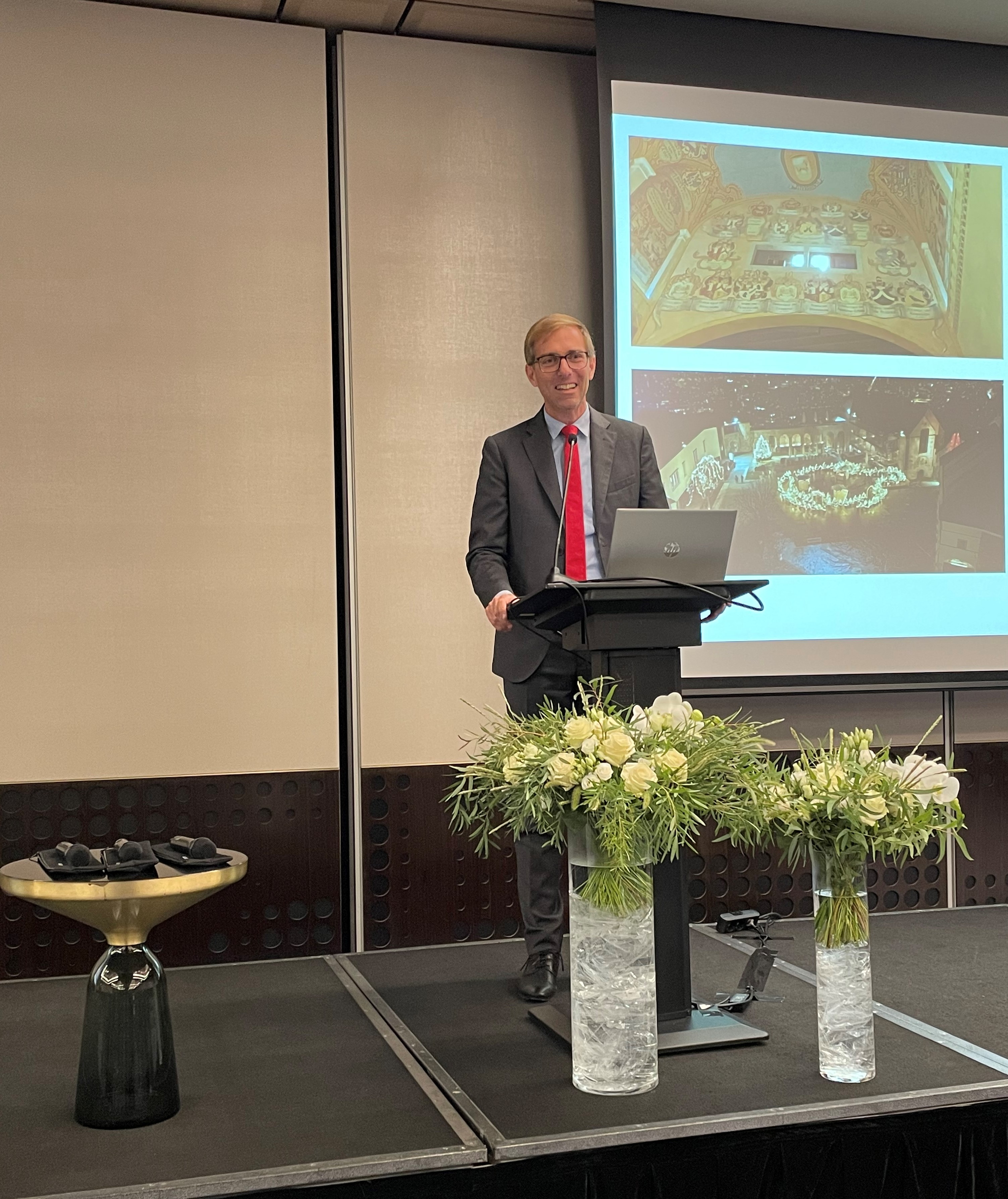
Herman Baskår, representing the Royal Norwegian Embassy in Budapest, also delivered a welcoming address. He commended the Ministry of Cohesion and Regional Development for their efforts in organising the event. In his speech, Herman Baskår noted, “Although the current financial mechanism period is approaching its conclusion, Norway, Iceland, Liechtenstein, and the European Union have already signed an agreement about the next period of Norwegian Financial Mechanism and the EEA Financial Mechanism 2021–2028.”
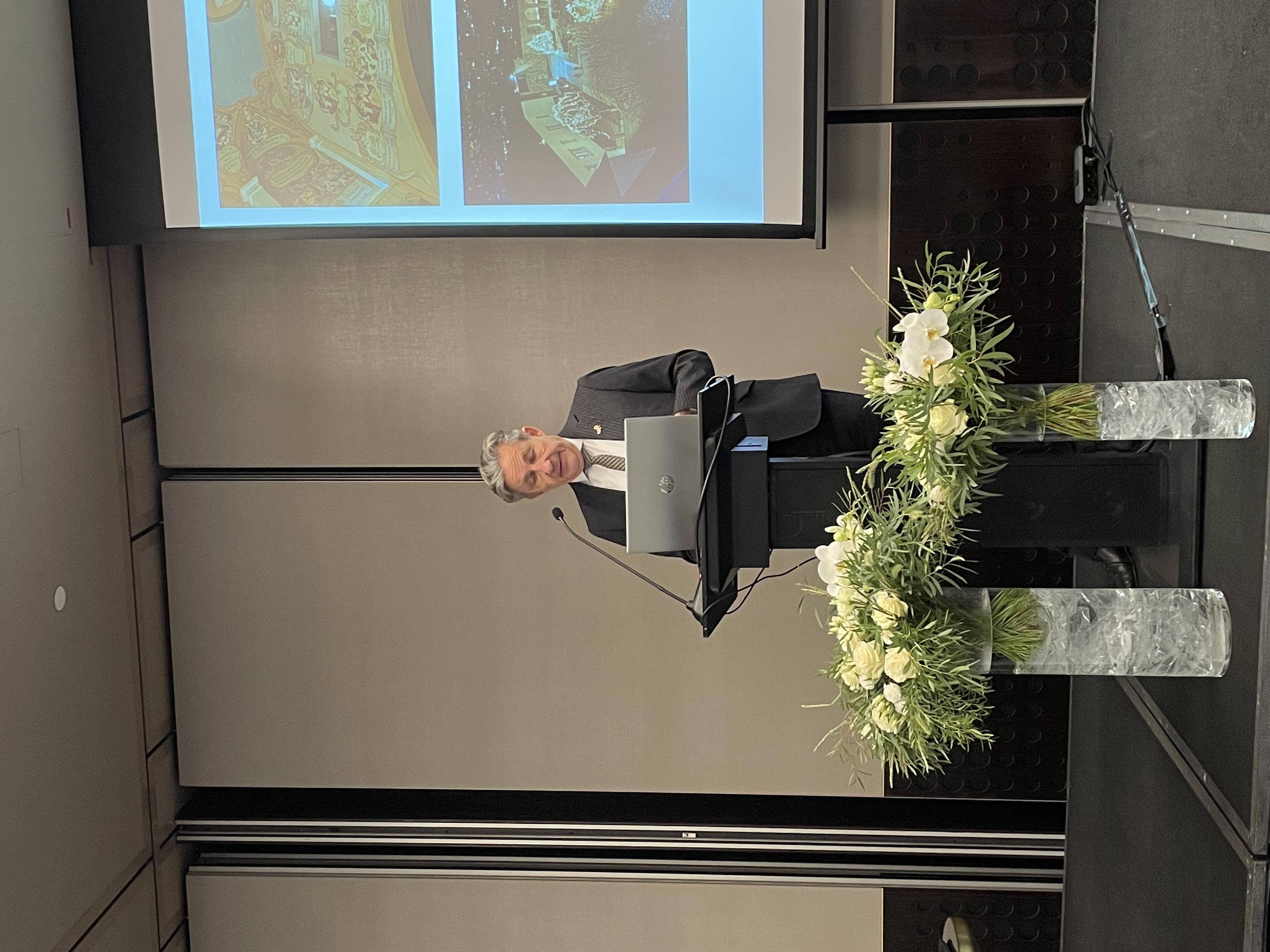
Svein Terje Båtvik from the Norwegian Environment Agency provided insights into collaboration with eight beneficiary countries during the current period. His presentation outlined the agency’s involvement in various environmental programmes across these countries.
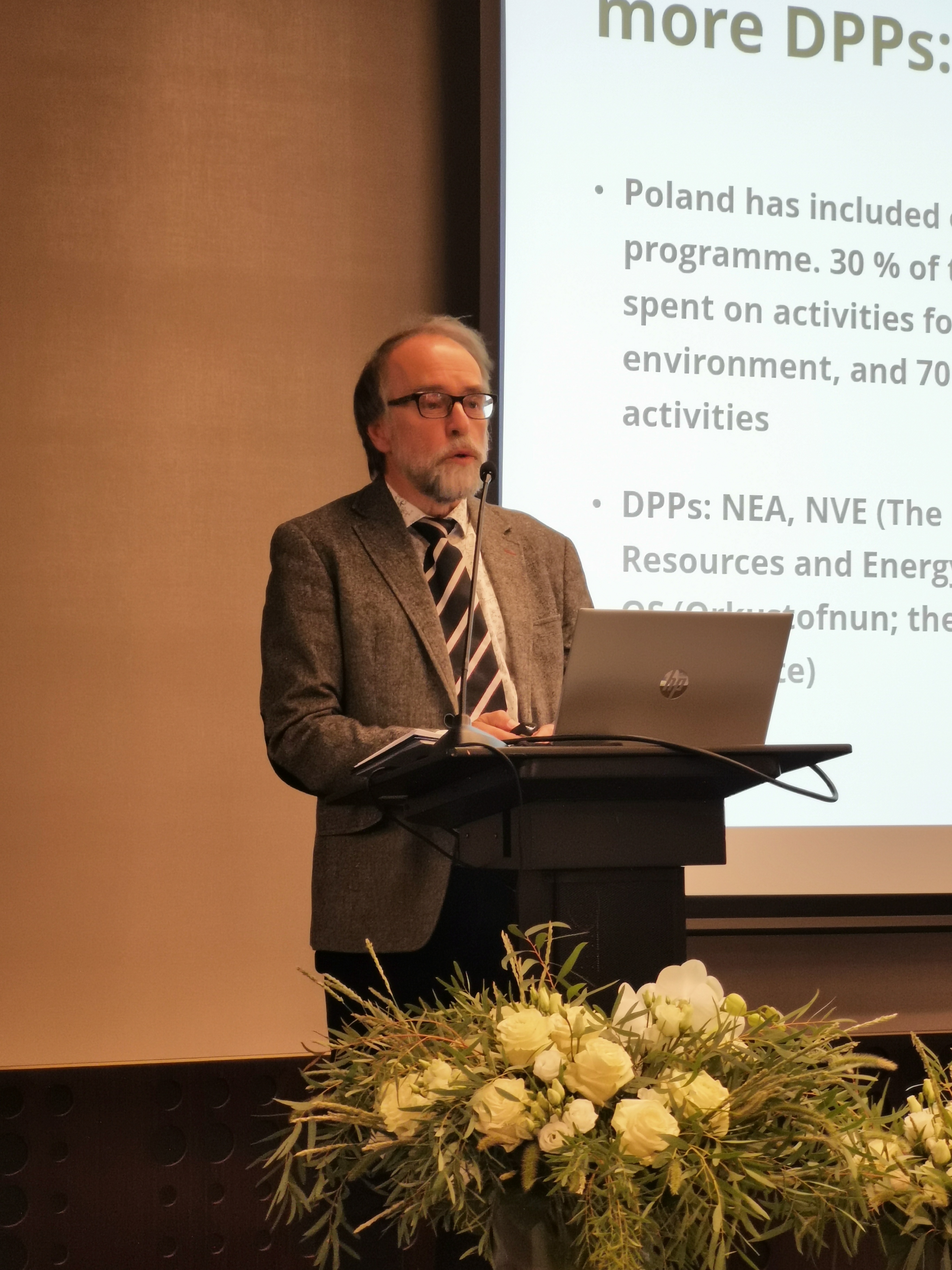
Representatives from several countries took the stage to share how they’ve tackled environmental challenges with the support of the EEA financial mechanism and the Norwegian financial mechanism. Estonia, Greece, Croatia, Latvia, Poland, Portugal, Romania, and Slovenia each contributed insights. Jadranka Plut, Head of the Financial Mechanisms Division at Slovenia’s Ministry of Cohesion and Regional Development, detailed Slovenia’s efforts under the Climate Change Mitigation and Adaptation Programme. She emphasised the programme’s role in expanding the share of renewable energy, stating, “The EEA Financial Mechanism has played a pivotal role in advancing renewable energy in our country.”
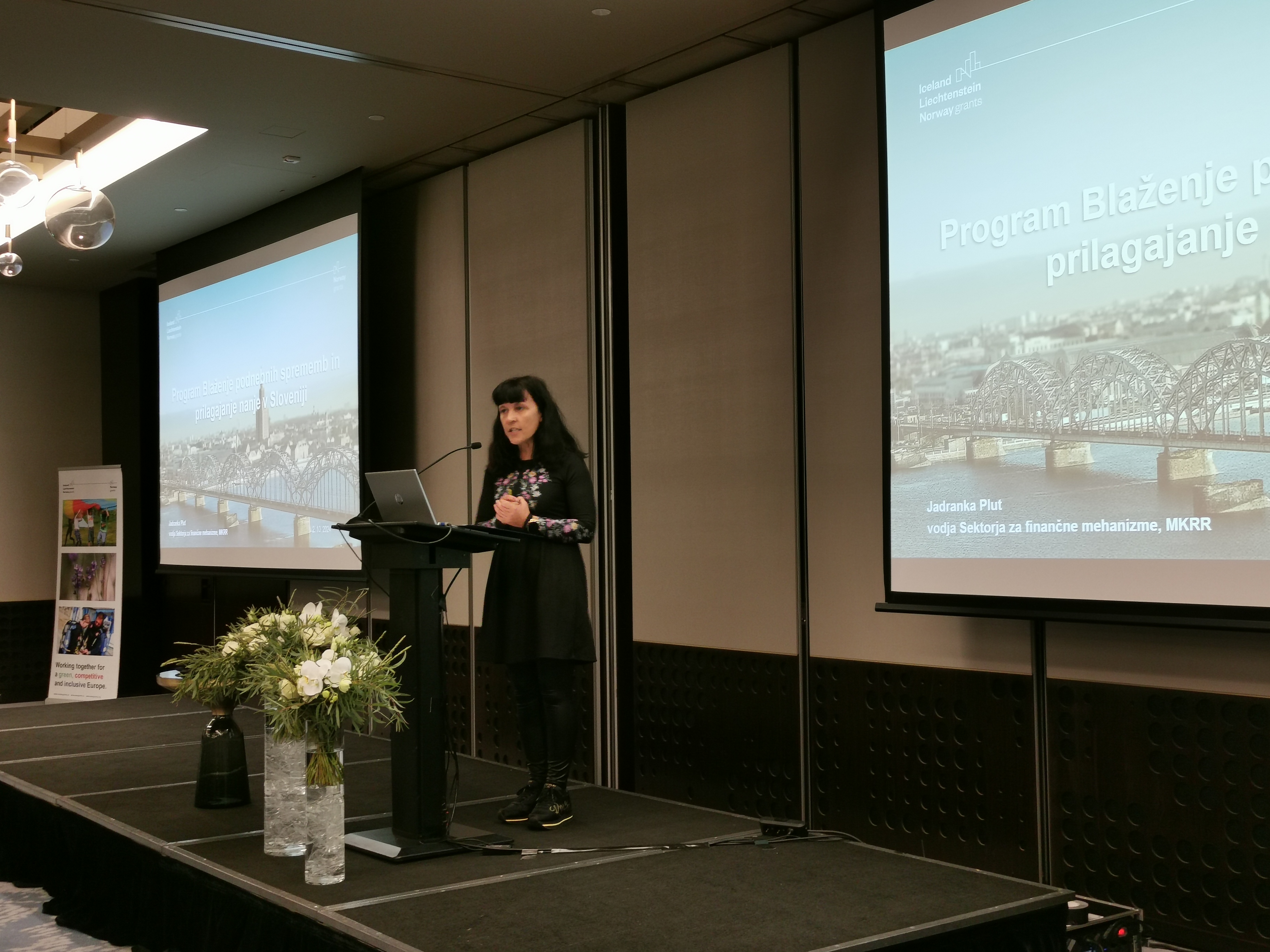
The next session featured Gabriel Mezang Nkodo, also from the Ministry of Cohesion and Regional Development, who examined the renewable energy sector within the broader context of European policy, stressing its importance for climate change mitigation.
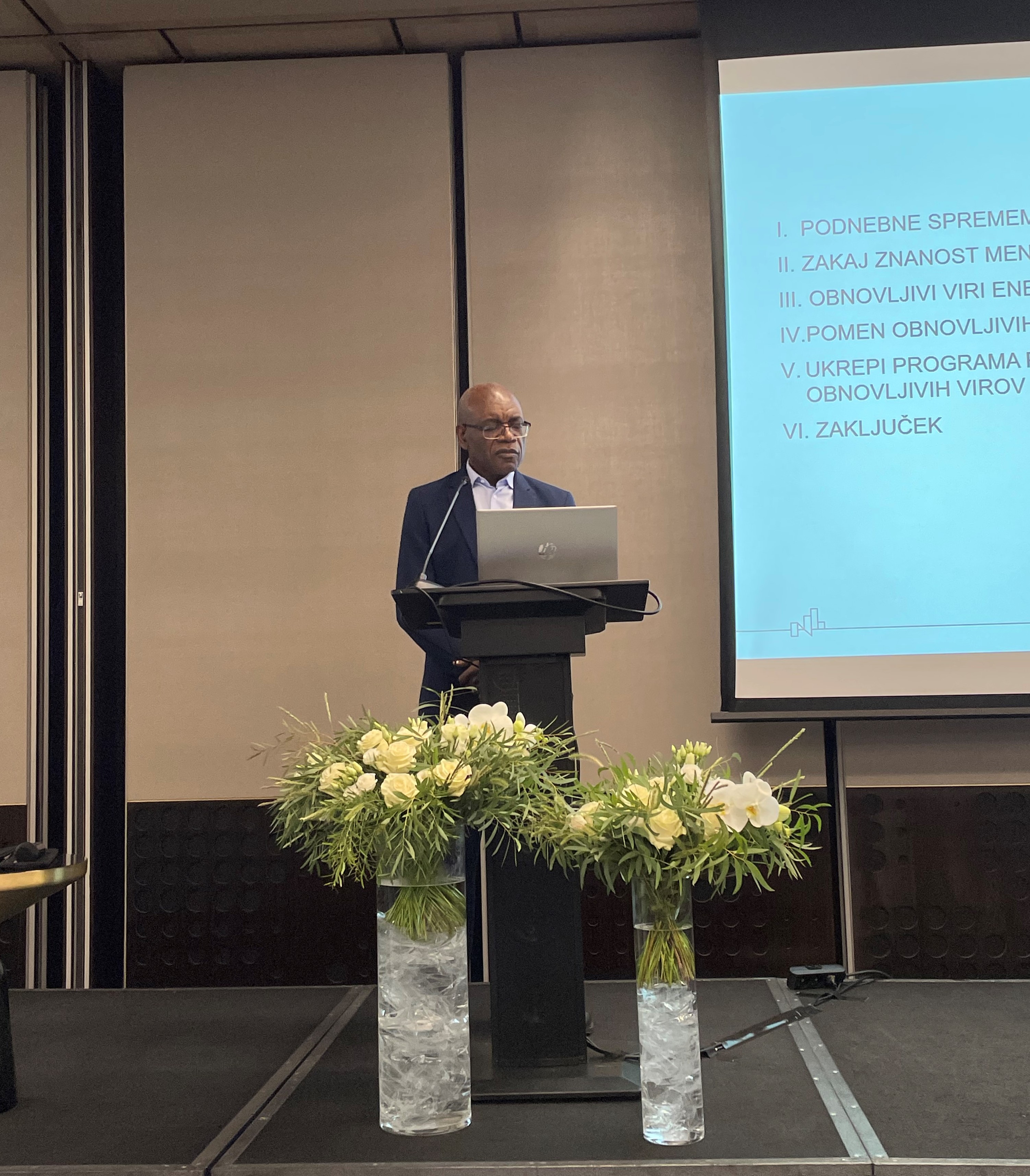
Uroš Fink from the Ministry of Environment, Climate, and Energy followed with a presentation on future co-financing opportunities for renewable energy projects. He highlighted the implementation of the Second Swiss Contribution in Slovenia, showcasing its potential for further development.
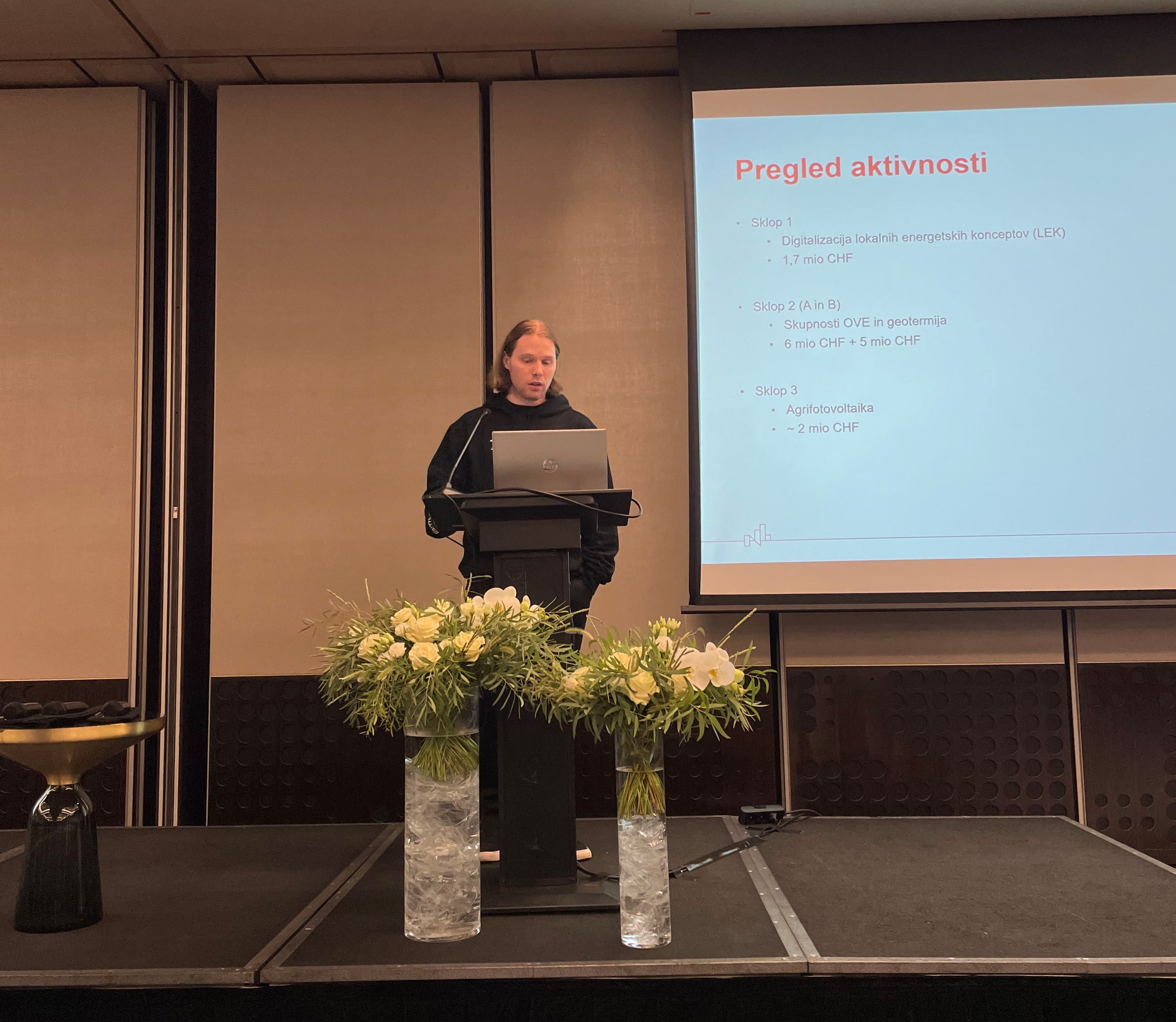
Roger Bymolt from the Financial Mechanisms Office provided an update on the upcoming period of the EEA Financial Mechanisms and the Norwegian Financial Mechanism 2021–2028.
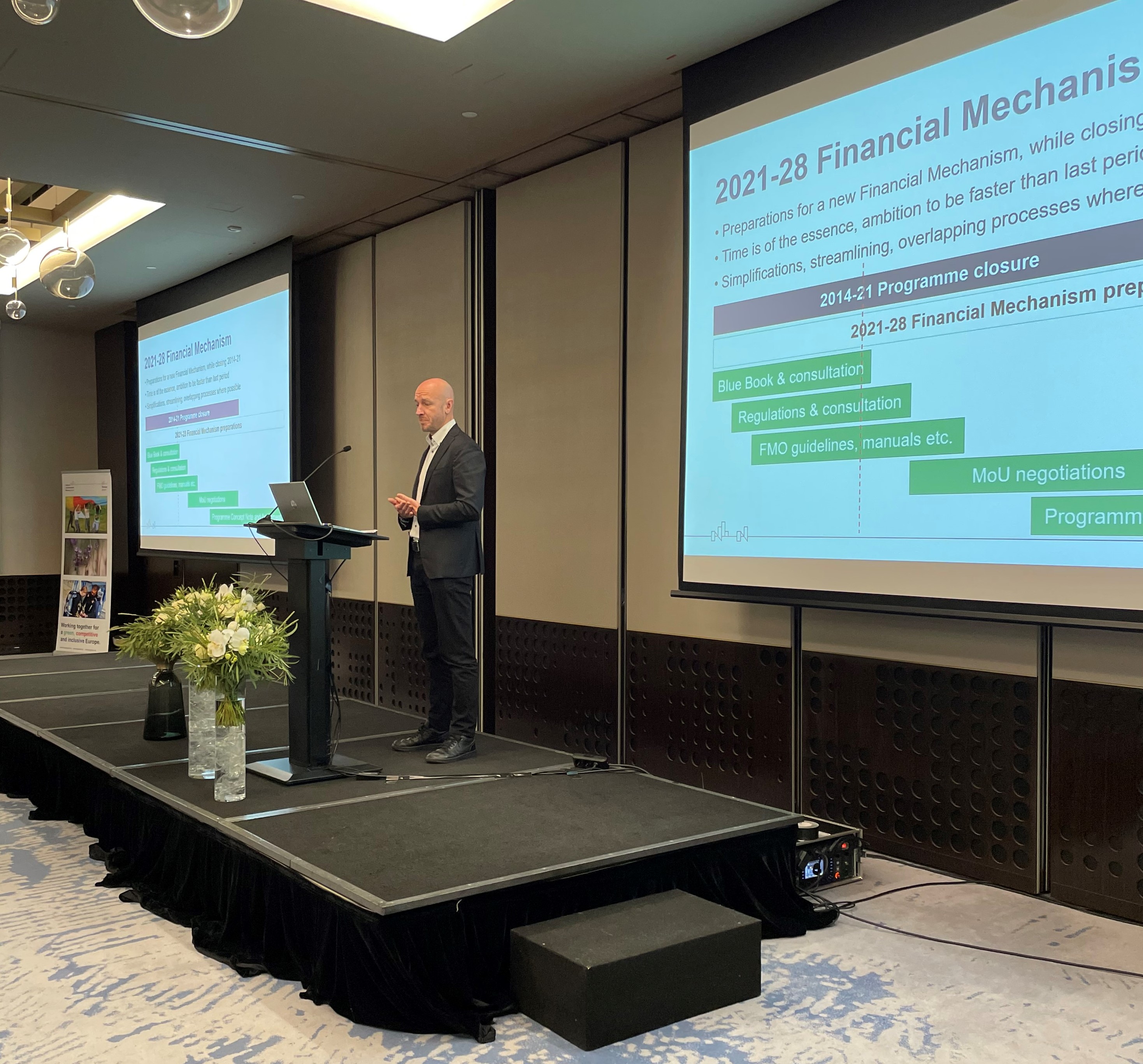
At the conference, three key projects supported by the EEA Financial Mechanism were presented, each focusing on renewable energy production. Andrej Lapanje from the Geological Survey of Slovenia introduced the INFO-GEOTHERMAL project, which focuses on geothermal energy production.
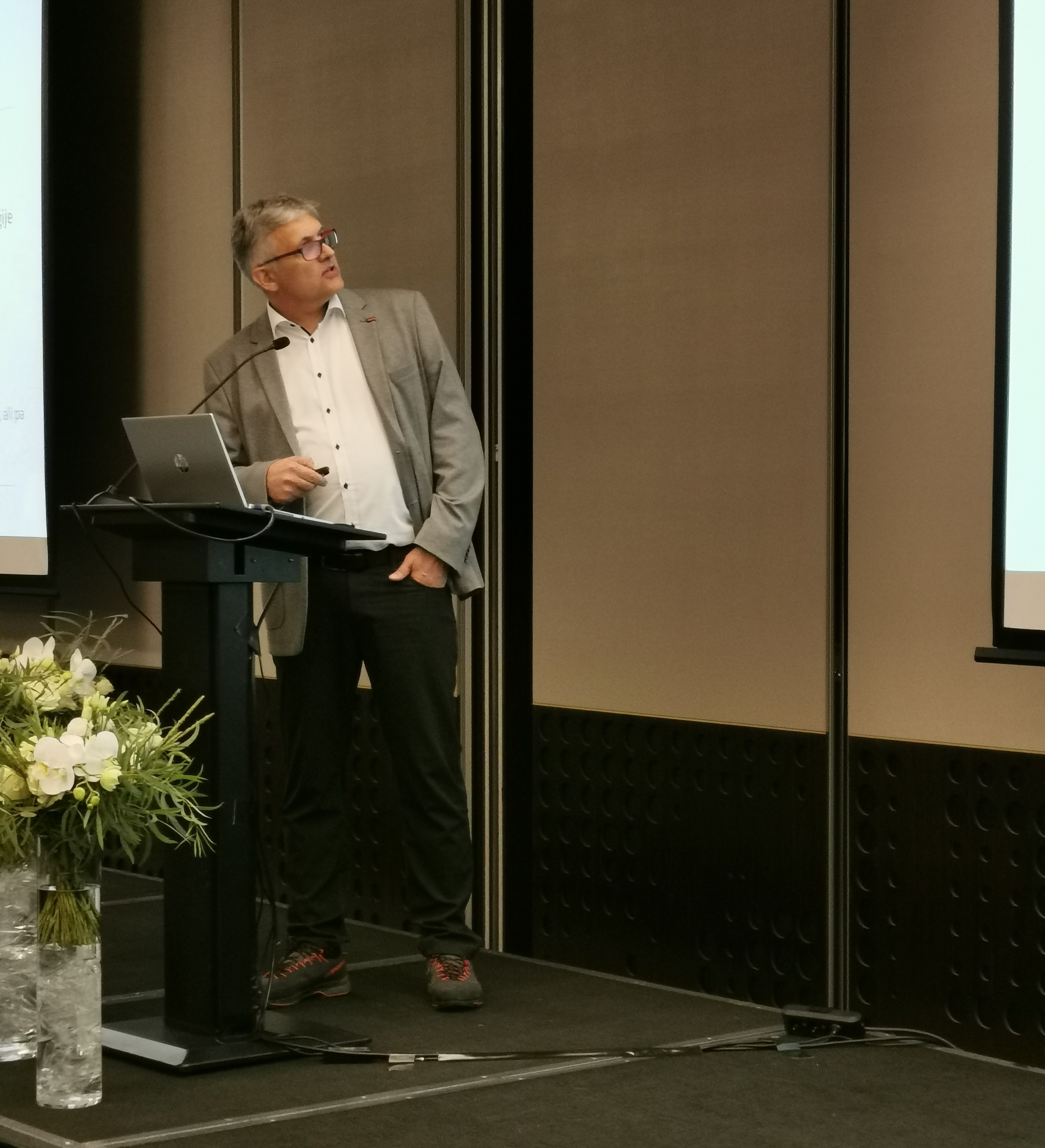
Dr. Mojca Božič from Hydropower company Dravske elektrarne Maribor followed with a presentation on SI-Geo-Electricity, a demonstration project also addressing geothermal energy.
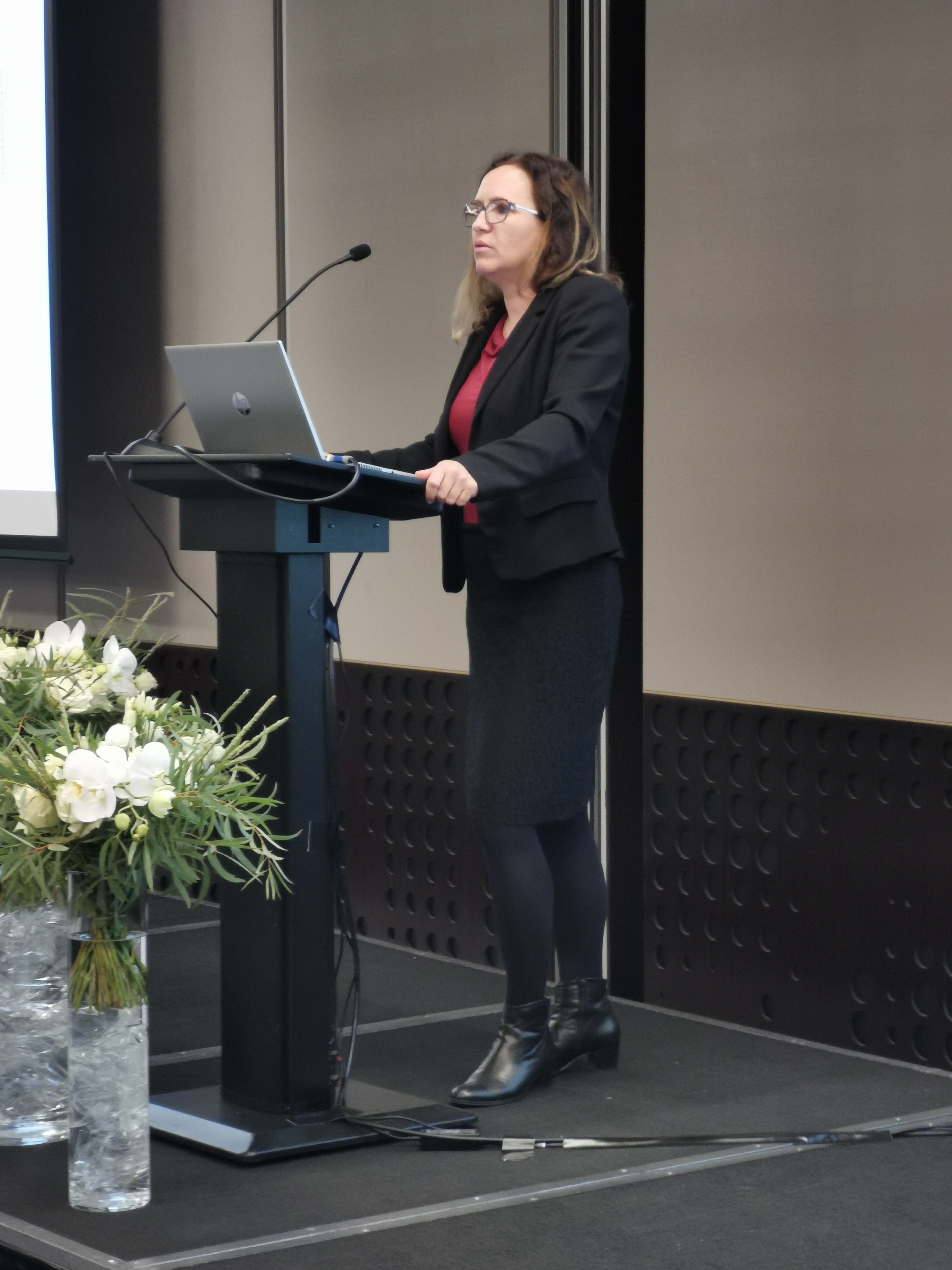
The final project, SOPOREM, was presented by Tina Bizjak from the Port of Koper. This project focuses on solar energy by installing two solar power plants – one at the Port of Koper and another on the roof of a parking garage in the Municipality of Koper.
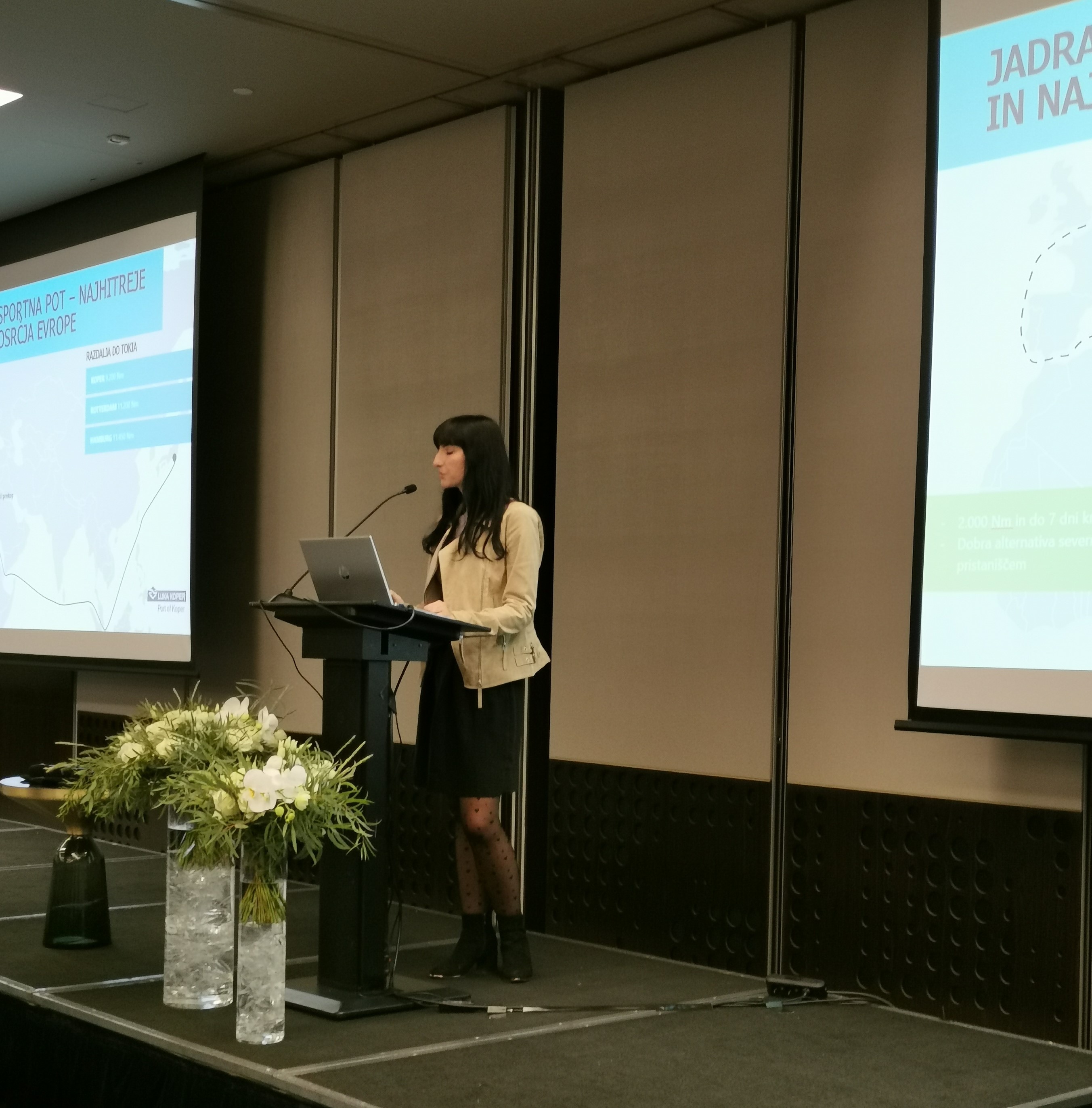
The conference concluded with a presentation of the Green Penguin project, supported by the Norwegian Financial Mechanism under the Education, Scholarships, Apprenticeship and Youth Entrepreneurship Programme. Tamara Ćetković from ISKRAEMECO explained how the project addressed climate change and the reduction of carbon emissions.
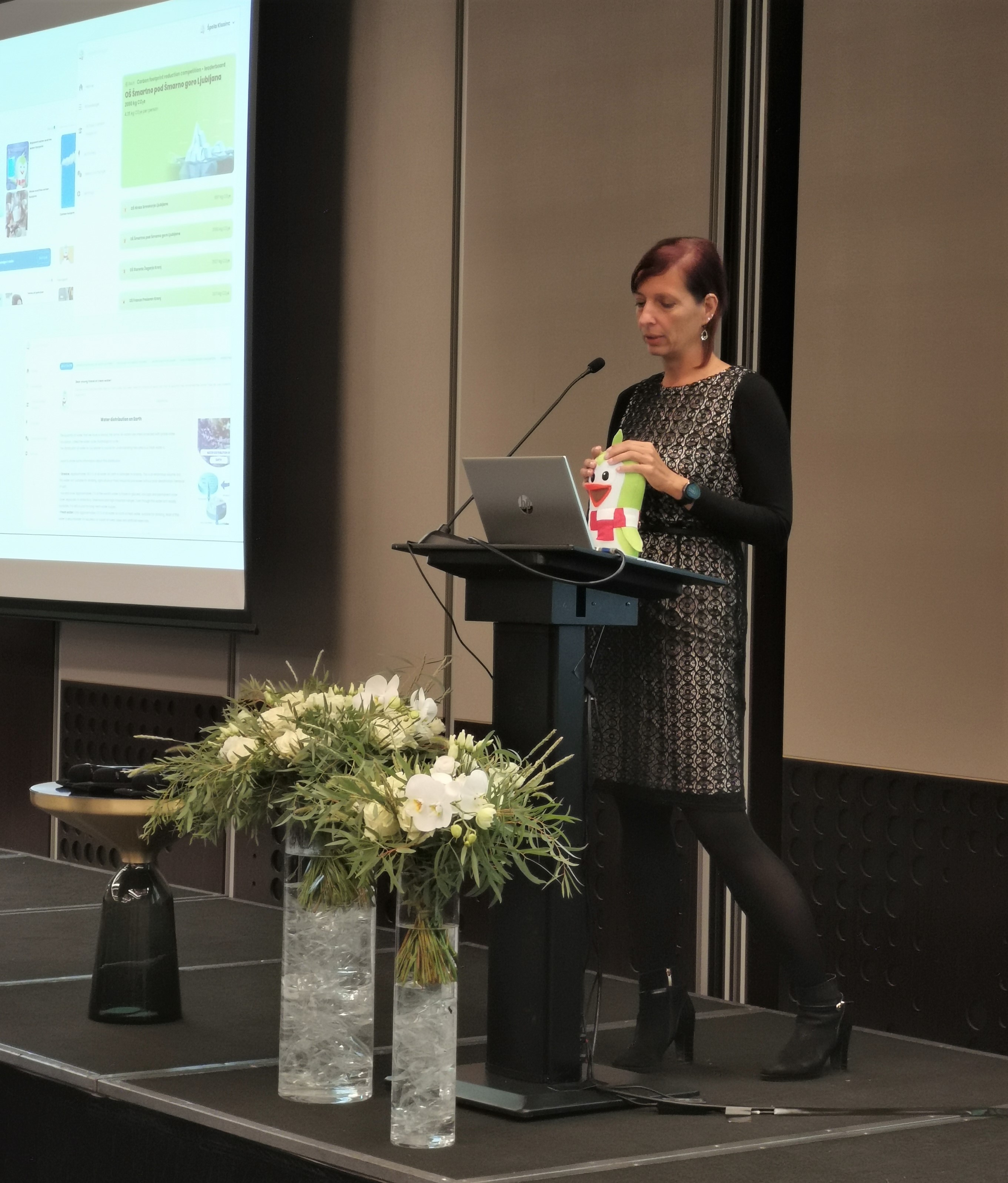
The Conference on Renewable Energy Production Challenges highlighted the key challenges and opportunities in renewable energy and stressed the importance of international cooperation.